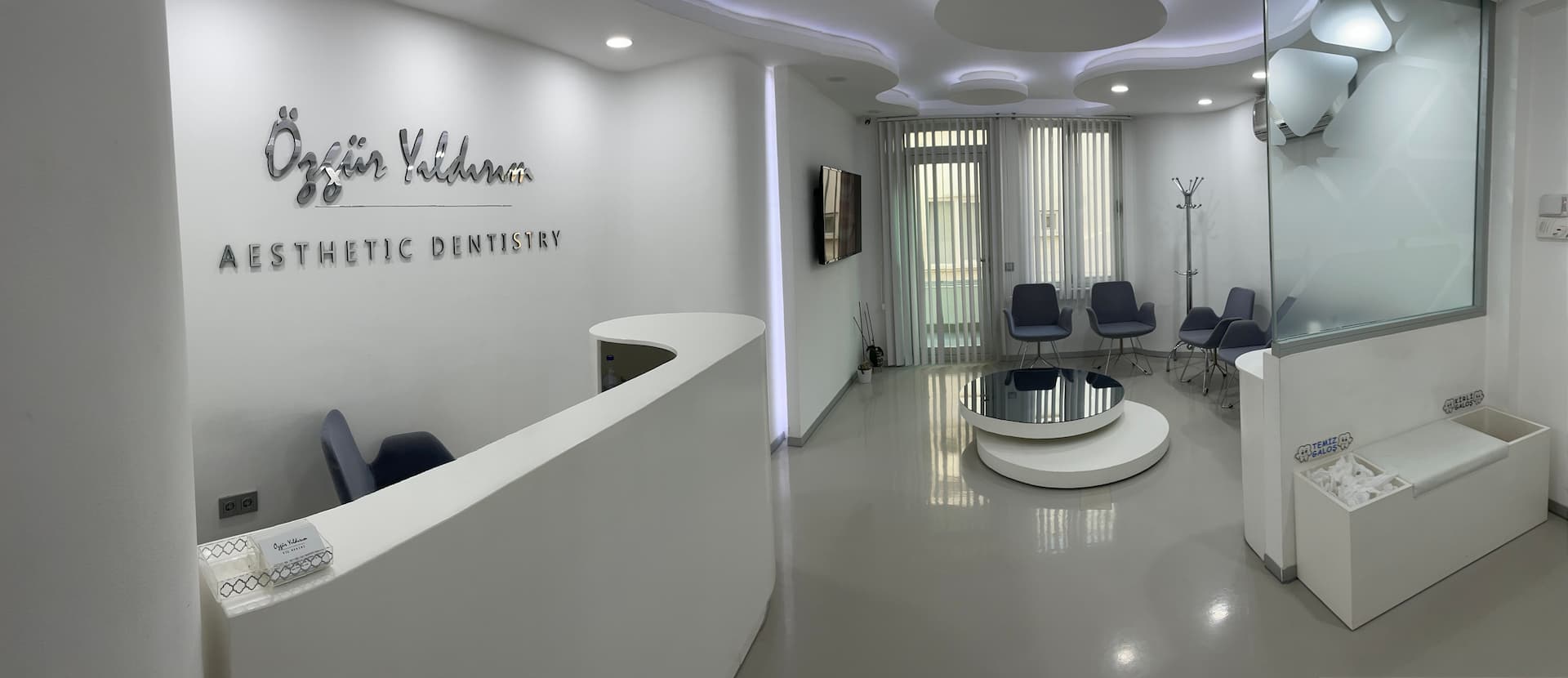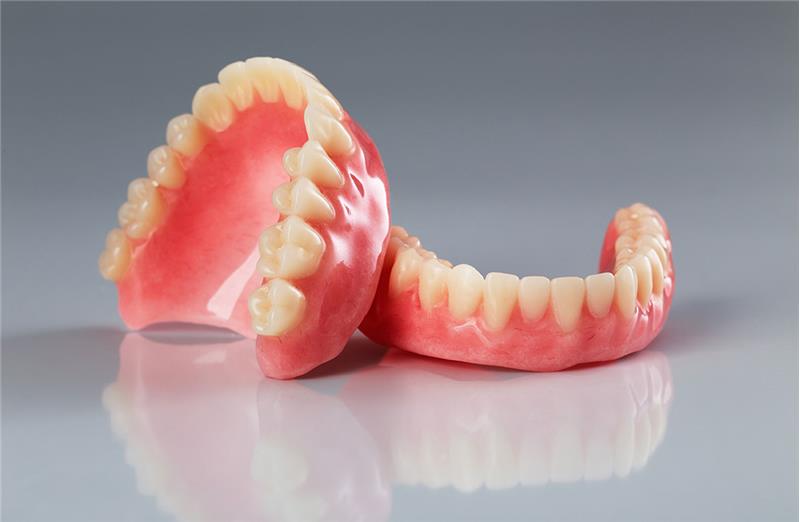
Antalya Prosthetic Dental Treatment
Prosthetic dental treatment is an application used to remove missing teeth and correct deteriorated tooth structure. With the treatment, it is aimed to maintain the soft tissue health and regain the lost chewing function.In order to restore the functionality and aesthetics of the teeth, two different treatment methods are applied, fixed and mobile, depending on the structure they support. Dentures that fit tightly to the gums will give a natural tooth feel in terms of both appearance and function.
Types Of Prosthetic Dental Treatment
There are a variety of dental prostheses that can be selected specifically for each patient's needs. When choosing among them, factors such as the number of teeth to be treated, the condition of the existing teeth, the thickness of the jawbone and the age of the patient are decisive. Your dentist will decide whether the prosthesis will be fixed or mobile, taking these considerations into consideration.
FIXED DENTURES
Fixed dentures are called artificial teeth. If there is excessive loss of tooth enamel or due to missing teeth, your dentist may recommend a fixed prosthesis. In this case, the teeth are reconstructed using materials similar to the color and texture of the surrounding teeth.
There are various prosthetic materials that can be preferred according to the tooth structure, including metal, metal-supported porcelain, reinforced porcelain or zirconium-based porcelain crowns. Fixed dentures can be glued on the teeth or screwed onto the implants after cleaning and maintenance. Fixed dentures are a very effective application in terms of the chewing function that they provide to the person as well as the aesthetic appearance of the teeth. With fixed prosthesis application, crowns can be used for a single damaged tooth and veneers can be used to improve the appearance.
REMOVABLE PROSTHESES
Removable prostheses, also called dentures, are mostly preferred in patients with extensive tooth loss or who have lost all their teeth. Since they are mobile, they can be easily removed and put on by the patient. It has two different applications as full dentures and partial dentures. During the application of full dentures, support is taken from the bone tissue of the lower and upper jaw. It replaces the entire set of teeth. Partial dentures are preferred to treat one or more teeth. They are fixed with metal clips.
How Is Prosthetic Teeth Treatment Performed?
Denture treatment can take a few days or a few weeks, depending on where the artificial tooth was made. Your dentist will need an X-ray of your teeth to examine your teeth and gums in detail. Prosthetic dental treatment aims at a treatment that will allow you to eat and talk comfortably, improve your dental aesthetics and support the remaining teeth.
Prosthetic dental treatment is started by taking the full mouth measurement for the tooth or teeth to be applied. Then, color determination is made with the patient and a decision is made. The prosthetic tooth model prepared in the laboratory is rehearsed and the compatibility is checked. The relationship of artificial teeth sent back to the laboratory for restoration work with adjacent teeth, opposing teeth and surrounding tissues should be checked.
Your prosthesis will be sent to the laboratory for polishing once again after your final approval for the prosthetic tooth, which has been finally checked to suit your face and smile. After the last rehearsal, the tooth is fixed or made ready for use.
Why Is Prosthetic Dental Treatment Needed?
Even a single missing tooth can negatively affect human life both physically and emotionally. Although losing a tooth may not seem like a big problem at first, even a gap in the mouth can lead to low self-esteem when noticed by other people while talking, smiling or yawning.
In addition to making the person embarrassed to speak and smile, the absence of one or more teeth also makes chewing difficult. In addition, gaps between teeth can lead to serious dental problems.
Which Dental Prosthesis Is Right For You?
Your dentist will decide which denture treatment is suitable for you after the preliminary examination. Various conditions such as the number of missing teeth of the patient, the thickness of the jawbone, and the general health of the existing teeth will be effective in determining the preferred treatment method.
In our Antalya prosthetic dental treatment clinic, considering the general health of your mouth, after the preliminary examination, if one or two teeth are missing, a partial prosthesis can be the solution for treatment, while in conditions where the number of natural teeth in the mouth is low, full denture applications or implants can be applied depending on the general health of the patient.
Our dentists will advise on which denture is suitable for your needs. You can evaluate alternatives by considering factors such as cost, appearance, duration of treatment and general health.
Do you have missing, discolored or damaged teeth? Then, you can make an appointment with our Antalya prosthetic dental treatment clinic to discuss dental prosthesis treatment methods that will solve your dental problems and improve your smile, and you can start your treatment in a short time by evaluating alternative treatment methods to dental prosthesis.
How Long Do Dental Prostheses Last?
Living tissue is in a state of constant change. With this process of change in living tissues, it is inevitable that the harmony of the prostheses with the tissues will deteriorate. It is important to pay attention to oral hygiene in order to prolong the life of dental prostheses. In addition, regular dental examinations should be performed for dental prosthesis care. In these examinations, your doctor will want to examine the compatibility of the tissues and the prosthesis. In addition, if necessary, the prosthesis can be filled and realigned. However, if the fit is completely broken, your dentist will likely recommend a new prosthesis.
How Should Prosthetic Teeth Care Be?
Fixed dentures generally do not require any maintenance other than regular dental cleaning. You may need time to get used to removable dentures. After a few weeks of adaptation, you will realize that you can use your prosthesis easily. If you have used dentures before, you can get used to it in a shorter time. In order to get used to your prosthesis, it may be recommended not to remove it while lying down in the first days. When you get used to your prosthesis, you can remove it and rest your mouth tissues.
It is important to clean the residues left on your prosthesis after each meal. The brush you will use during cleaning should be soft. In addition, it is recommended to brush by applying light force in a bowl of water so that your prosthesis does not fall and break.
FAQ
What is a prosthetic tooth and why is it needed?
How Should Prosthetic Teeth Be Cleaned?
What kind of care should be done after denture treatment?
In Which Situations Is Prosthetic Dental Treatment Recommended?
How Long Do Prosthetic Teeth Last?

